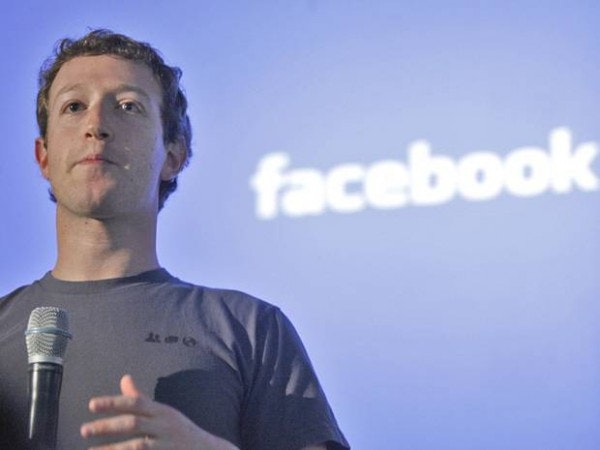The funny part about this whole predicting the future thing is that it’s kind of an inexact science. Inevitably, I will be wrong on some accounts.

Earlier this week, ahead of Facebook Inc (NASDAQ: FB)‘s announcement on Thursday, I wrote an article outlining the many roadblocks the company faces in its attempt to embed itself deeper into the phone experience. After the announcement, I realize I missed the mark.
Zuckerberg and co calmed my worries that the announcement could be a disaster, and it looks like it’s created a great product in Home to extend its brand’s reach across the mobile platform.
Some quick background on Home
Facebook Inc (NASDAQ:FB)’s Home is a new interface that sits on top of the Google Inc (NASDAQ: GOOG) Android operating system. It allows users to see what’s going on with their Facebook Inc (NASDAQ:FB) friends directly from the phone’s home screen without even having to turn it on. The biggest focus of the Home interface is on connecting with people, particularly through messaging, which appears vastly improved over traditional messaging interfaces.
Where I went wrong
This article is not to make excuses about what I wrote previously. Instead, I’d like to examine the roadblocks the company overcame, and why they’re so important for this new product’s success.
Earlier this week, I wrote, “Instead of a link that pops up when users fire up the Facebook Inc (NASDAQ:FB) Android app and installs the new OS feature automatically, the company must go through the phone manufacturers.” I could not have been more wrong! In fact, this is exactly how most users will be able to install Home on their phones.
While Facebook Inc (NASDAQ:FB) still needs to work with phone manufacturers to ensure its software is compatible with the hardware, Facebook seemingly designed Home with the most popular Android phones in mind. The ease of install, and the broad advertising space of Android Facebook app users, should provide great user adoption numbers.
One of the biggest surprises, for me at least, is that Facebook Inc (NASDAQ:FB) will be compatible with the most popular Android phone from Samsung, the Galaxy S III, and its follow up, the Galaxy S IV.Samsung’s share of the smartphone market trails only Apple, and it’s by far the biggest manufacturer of Android phones.
The ability for it to access the large and growing Samsung user base is a key to Home’s success, as its pre-announced partner, HTC, is clearly losing ground to the competition. Furthermore, the release of Home aligns perfectly with the release of Samsung’s Galaxy S IV, so there’s potential for Facebook to partner with Samsung during its big marketing push.
Another incorrect prediction I made is that Facebook would be unable to gain support from the big wireless carriers – “It simply doesn’t make sense for big carriers, which rely on packaging texting plans with data plans, to promote a product that provides a significant threat to that business.” Sure enough, CEO Mark Zuckerberg announced plans to partner with AT&T Inc. (NYSE: T) and France Telecom-Orange.
This is reminiscent of another phone announcement some years ago by a different company. Partnering with wireless carriers is important in order to get phones in front of people where they shop for phones. It’s doubtful AT&T Inc. (NYSE:T) would have partnered with Facebook and HTC if it didn’t intend on promoting the phones in stores and on its website. AT&T will likely harp on its early exclusivity with hopes for another iPhone-like winner.
Google Inc (NASDAQ:GOOG) win or loss?
I previously wrote, “Google, for its part, will likely welcome a new Facebook feature. … If the new Facebook fork proves popular, there could be an uptick in Android sales.” I still believe this statement is true. The company released a statement after Facebook’s event – “It’s a win for users who want a customized Facebook experience from Google Inc (NASDAQ:GOOG) Play — the heart of the Android ecosystem — along with their favorite Google Inc (NASDAQ:GOOG) services like Gmail, Search and Google Maps.”
Unlike Amazon’s fork of the Android OS for its Kindle tablets, Home doesn’t get rid of the Google Play store or other Google Inc (NASDAQ:GOOG) services, which the company relies upon to generate profit from Android. And while Facebook is increasingly competing with Google in some respects, Google Inc (NASDAQ:GOOG) still has a lot to gain from the potential increase in Android market share driven byHome.
The fundamental changes in Home aren’t app purchases, mapping services, or internet searching. It’s in how users interact with Facebook, with a focus on messaging – an area where Google has only a small interest. Therefore, Home should be a win for Google Inc (NASDAQ:GOOG) should it prove popular.
Does engagement mean revenue?
The goal for Facebook appears to be improving user engagement with its products. Homemakes it easy to interact with your News Feed and integrates Facebook Messenger very nicely with the rest of the phone’s software. The question remains, can Facebook effectively monetize Home.
Mobile monetization is not a new issue for Facebook. I don’t think it would have invested the resources for such a product if it didn’t think it could boost mobile revenue with Home. While it eschewed the numerous roadblocks I previously believed posed a serious threat to this product’s success, it still needs to, first, become popular enough to turn on the ad-switch, and then stay popular once it does.
Adam Levy has no position in any stocks mentioned. The Motley Fool recommends Facebook and Google. The Motley Fool owns shares of Facebook and Google.
